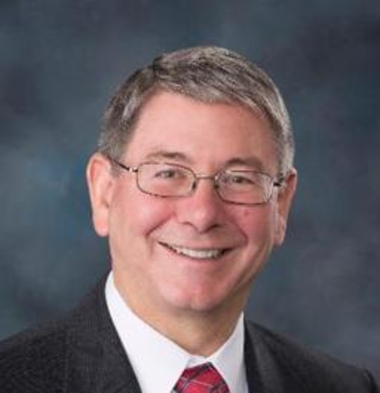Idaho legislator proposed bill allowing discrimination against gays, unwed mothers

Boise, Idaho (AP) — Idaho lawmakers and conservative Christian allies who contend faith is under siege by gays, lesbians and the government are launching a "pre-emptive" strike to bolster rights of licensed professionals to refuse service or employment to those they conclude violate their religious beliefs.
On Tuesday, Rep. Lynn Luker outlined a plan to shield religious people from the threat of having their professional licenses — issued for everything from midwives and doctors to physical therapists and nurses — revoked.
Luker, a Boise Republican, knows of no example in Idaho of an actual challenge to a professional's license on these grounds. Still, he points to efforts by gays and lesbians elsewhere seeking to end what they contend is discrimination against them as a sign Idaho must act quickly to protect the faithful before something similar arises closer to home.
"This is pre-emptive," Luker said. "The issue is coming, whether it's 10 years, or 15 years, or two years."
Among cases Luker cites as a catalyst for his proposal, which now awaits a full hearing, is that of a suburban Portland bakery that refused to bake a cake for a same-sex couple. The Oregon Bureau of Labor and Industries determined that Sweet Cakes by Melissa unlawfully discriminated against the couple based on their sexual orientation. That case is in the midst of settlement talks.
New Mexico also has been scene of a court fight after a photographer declined to take pictures of a lesbian couple's commitment ceremony, arguing she was exercising her rights to free speech and artistic freedom.
Unlike those states, Idaho's Human Rights Act includes no such protections for gays and lesbians. Republican lawmakers have rejected efforts to add them.
Now, Luker, with the backing the Cornerstone Family Council advocacy group, says Idaho needs to go further, before somebody challenges whether license-holders have a duty to provide a service to somebody they've concluded is contrary to their religion.
Julie Lynde, Cornerstone's executive director, says governments are increasingly passing or interpreting laws to block people from "living out their faith."
"The free expression of religious freedom is no longer understood for what it was intended," Lynde said. "There's a double standard against people of traditional religious faiths."
The Idaho Bureau of Occupational Licenses helps oversee 29 boards that issue licenses for professionals Luker's measure aims to shield. Additionally, it extends a shield to nurses, doctors, teachers, firefighters and police officers, among others. If adopted, nobody could have his or her license revoked by a government agency or board for "declining to provide or participate in providing any service that violates the person's sincerely held religious beliefs."
An exception: Emergency personnel couldn't refuse to treat somebody, Luker said.
Additionally, he said, his bill doesn't authorize "the intentional infliction of emotional or physical injury."
Even so, Democratic Rep. John Gannon of Boise worried a doctor who received state taxpayer support for his or her education — through an existing Idaho program aimed at boosting medical professionals — could refuse to take on gay, lesbian, bisexual or transgender patients.
Luker, a lawyer, said his bill only protects that individual's license, but wasn't a barrier to an employee being fired if he or she violates an employer's policies.
Contacted Tuesday after the meeting, Tana Cory, who heads the Idaho Bureau of Occupational Licenses, wasn't aware of any instance when somebody refused service brought a disciplinary case against one of her bureau's licensees.
American Civil Liberties Union of Idaho executive director Monica Hopkins also said she couldn't think of a previous real-world application of Luker's bill in Idaho.
"This is a solution searching for a problem," Hopkins said.
Rep. Holli Woodings, D-Boise, was skeptical Republican majority lawmakers will back the bill, once they grapple with its broad implications. For instance, she said, what if there's a lone drivers-education business in a town whose owner's faith teaches women shouldn't drive? Or what if a restaurant denies service to women, on similar religious grounds?
Though hypothetical, Woodings said, these examples illustrate "the bill is fraught with issues."
by John Miller, Associated Press
Copyright 2014 The Associated Press. All rights reserved. This material may not be published, broadcast, rewritten or redistributed.
The Gayly – January 28, 2014 @ 4:50pm





